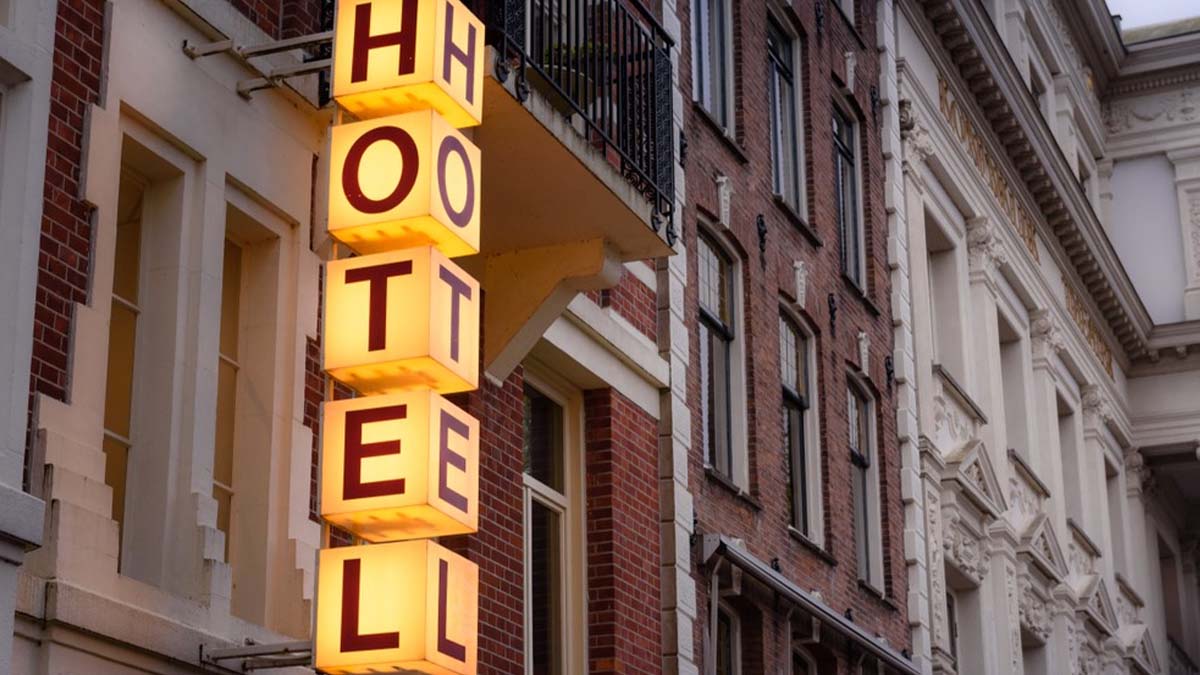Are you ready to improve your hotel or lodge? A “renovation construction loan” might help you get more out of your home. Imagine transforming old places into modern havens, giving people unforgettable experiences, and making more money in the long run. This loan lets you change, grow, or improve your hotel business. You can use this blog as a guide to get the loan you need to fix up your house and make your big dream home come true.
Table of Contents
ToggleUnderstanding the Power of a Renovation Construction Loan
There’s a type of loan called a “renovation construction loan” that can help you buy a business property and improve it simultaneously. A typical business mortgage can only be used to buy a building already rented out. But this loan knows that much money must be spent immediately to build or improve something. It has a short-term loan for the fixes and a long-term loan for when the work is done.
This nature has two sides, which are suitable for hotel land. It lets owners buy properties with untapped potential, like an old hotel in a great spot, and then fix them up to make them more competitive and able to meet guests’ needs as they change. To make the shared areas cozier, you could add new features like high-tech equipment to the guest rooms. You could also add trendy restaurants or exercise centers. With this approach, many hospitality businesses can get a significant return on their money, such as hotels, motels, resorts, restaurants, and even places to hold events. High rental rates, average daily rates, and happy guests are all things that can help it do this.
Navigating the Different Types of Renovation Financing
Getting the right finances is a big part of fixing your hotel business. There are different kinds of loans for various needs and due dates for projects:
Construction loans help pay for the work needed to renovate a house or apartment. Usually, money is given out in stages based on a set plan tied to meeting certain building goals. For lenders, projects must have thorough plans, budgets, and regular checks to ensure they are completed on time and budget. This type of loan is the easiest way to get money for your renovation, but it takes a lot of work to prepare.
Bridge Loans: Individuals utilise these short-term loans as a transitional measure between longer-term loans. People often get them when moving or need cash immediately until they can get a long-term loan. A bridge loan could help save money while waiting for a longer-term loan to be accepted or another asset to be sold. This could be useful when renovating a hotel. On the other hand, because they are short-term, interest rates are usually higher, and you have to pay them back quickly.
Hard Money Loans: The property’s value, not the borrower’s creditworthiness, is used to protect these loans. Although obtaining them is typically simpler, the interest rates are typically higher, and the repayment period is often shorter. If time is of the essence or it’s hard to get standard financing, a hard money loan might work for a quick, small-scale renovation in the hotel business.
SBA Loans (e.g., SBA 7(a), SBA 504): The Small Business Administration (SBA) works with lenders to make government-backed credit available. For small businesses, these loans can be helpful. You can use an SBA 7(a) loan for many things, like making changes to your home. SBA 504 loans, on the other hand, are meant to be used to buy safe things like homes and other properties. People who want to update their hotels may be interested in these loans because they have lower down payments and longer terms for paying them back. On the other hand, the entry method might take longer.
FHA Commercial Property Investment Loans (including FHA 241(a)): The Federal Housing Administration (FHA) offers loan insurance for business properties, even if they need a lot of work done on them. The FHA 241(a) programme helps pay for changes that need to be made to healthcare and residential buildings that are already there. This can include hotels and other sites that offer lodging. More often than not, FHA-backed loans have lower interest rates and longer terms. This makes them a good choice for significant repairs that need to be updated and will last for a long time.
Key Factors Lenders Consider for a Renovation Loan
When someone applies for a loan to fix up their house, lenders carefully consider several important factors to determine the risk and possible return. Knowing these things will give you a better chance of getting accepted and on good terms.
Credit Score: Your personal and business credit history shows how responsible you are with money. Lenders will look closely at your credit report to see if you have ever been late on payments or gone bankrupt. A good credit score, usually above 680 or even 700 for the best terms, shows that you are less likely not to pay back the loan and makes you more likely to get it.
Loan Amounts and Loan-to-Value (LTV): A clear and attainable plan for the renovation job is essential. Lenders must know what changes they want to make, when, what materials to use, and who to hire. A detailed budget that includes all the costs you expect, such as permits, labor, supplies, and emergency funds, shows that you are prepared and helps the lender decide if the project is possible and if the loan amount is enough.
Renovation Project Scope and Budget: It is essential to have a clear and achievable plan for the renovation project. When they want to make changes, what resources they will use, and who they will hire to do the work are all things that lenders need to know. You can show that you are ready by making a thorough budget that includes all the costs you expect, like permits, labor, supplies, and emergency funds. This also helps the lender decide if the project is possible and if the loan amount is enough.
Borrower Experience and Financial Capacity: Lenders will look at your experience with building homes, running a hotel, and other similar tasks. Let’s say you’ve done business and worked on projects before. After that, people will trust you to improve the house and run it when it’s done. They will also look at your salary, investments, and bills to ensure you have enough money to repay the loan and cover any extra costs during the renovations.
Property Appraisal: You need a professional review to get a loan. Let’s say you want to borrow money to fix up your house. As a result, the appraiser must inform you of the property’s current market value and its “as-completed” value, which estimates how much it will be worth after the repairs are finished. The lender will decide how much of a loan to give based on their confidence that the project will make more money and repay the loan.
The Renovation Construction Loan Process: A Step-by-Step Guide
There is a set way to get a loan for renovations and construction. Knowing what to do at each step will simplify the process.
Step 1: Initial Consultation and Pre-Qualification: Contact possible lenders offering business buildings or real estate loans. Talk about what you want to change, how much you think it will cost, and when you’d like it done. This is the first look at your funds and how well the project can progress. For example, a lender will want to know about your credit, income, and property to determine how much of a loan you can get and on what terms.
Step 2: Application Submission: Once you’ve picked a lender, you must complete an official loan application. You’ll have to show a lot of paper, of course. Include complete financial records for both you and your business, a detailed plan for the renovation project with specifications, bids, and agreements from contractors, permits (if you already have them), and details from a possible market study for your hospitality sector. To avoid delays, it’s essential to be exact and complete.
Step 3: Underwriting and Due Diligence: The lender will carefully review your application and any other paperwork that comes with it. In this step, “underwriting”, the loan is examined to determine its risk. They’ll check your credit score, your home’s value now and after the makeover, your workers’ skills, and if you can pay. Aside from that, people from outside the group may also visit, evaluate, and ask for more information or explanations.
Step 4: Loan Approval and Commitment: Once everything checks out, the lender will send a loan promise letter. This document is legally binding and includes the loan amount, interest rate, repayment terms, requirements for getting the loan, and any other needs. Read this letter slowly and make sure you understand everything before moving on.
Step 5: Closing and Initial Funding: The loan papers are signed during the closing stage, and any closing costs are paid. Some of these costs include title insurance, an assessment, and court fees. Once everything is signed, the first cash draw will be sent out. This first number is often used to get everyone on board with your project before you start building. This is shown in your budget.
Step 6: Project Monitoring and Fund Disbursement: The lender will monitor the renovation to ensure it stays within budget and follows the accepted plans. When someone asks for money, they usually need to send proof of work done and costs paid. Before giving more money when agreed upon, the lender may check to ensure the job is done right.
Step 7: Loan Conversion (if applicable): When the renovation is done and the investor is happy, the construction-to-permanent loan will turn into a long-term business mortgage with fixed payments. You won’t have to refinance when the building is done because this change makes it easier to get a loan.
Strategies to Strengthen Your Renovation Construction Loan Application
To improve your chances of getting a renovation construction loan with good terms, think about using these tips:
Develop a Detailed and Realistic Project Plan: Lenders want to know you’ve given your makeover much thought. Full architectural drawings, a clear outline of the work that needs to be done, a reasonable schedule, and, most importantly, accurate and complete cost estimates for every part of the project, with some room for error, are all part of this. This shows the investor that you are ready and makes them think you are less risky.
Obtain Multiple Contractor Bids: Get bids from several trustworthy contractors. This shows that you did your homework and helps you stick to your budget. The lender can also see how accurate your cost estimates are and how experienced your chosen professionals are.
Improve Your Creditworthiness: Look at your and your business’s credit before applying. If you find any problems, fix them. Your credit score can increase if you pay off your debts and make timely payments. This makes you a more appealing renter.
Demonstrate Strong Financial Health: Give complete, well-organized financial records for your business, like your most recent tax returns, bank bills, and statements of profit and loss. You can repay the loan and show that you can handle your money. Get ready ahead of time to explain any holes or things that might worry you.
Consider a Line of Credit for Smaller Projects: A business line for smaller DIY projects might allow you to get the money you need more easily and quickly. You can use the funds when needed and pay them back for a set amount of time. This might be a faster and easier way to pay for minor changes or improvements.
Highlight the Potential ROI: Find out how much money you can expect from your repair job (ROI). Figure out how the changes will increase the property’s value, bring in more guests, raise rates, and make more money in the long run. This will prove that the job can be paid for, which will help your case when you apply for a loan.
Understanding the Costs Associated with a Renovation Loan
There is more to getting a loan to fix a building than borrowing money. Get ready for the different fees you usually pay at the end of the deal. There are application fees, assessment fees (to find out how much the property is worth), legal fees (to look over papers), title insurance (to protect the lender’s interest), and loan processing fees (that the lender charges to process the loan).
Also, remember that costs may increase while the repair goes on. For instance, interest rates can change (especially for loans with variable rates), and the lender may charge review fees to ensure the work is done before giving the money. You must include these costs in your budget to plan your money well.
Conclusion
A loan for renovations is an excellent way for the hotel business to grow and become more up-to-date. You can help owners improve their homes, make more money, and improve the guest experience by giving them the money they need to buy things and make significant changes. Consider your financial options carefully, and be ready for the application process. At HotelLoans.Net, we know how to help you with this. Get in touch with us right away for specific cash help. This is your chance to make your dream hotel come true. Let us help you find the best remodeling building loan.
FAQs
How long does the approval process for a hospitality renovation construction loan typically take?
The time it takes to get accepted depends on the lender, the project, and how complete your application is. It is typically anywhere from a few weeks to a few months. Your project plans’ level of depth, how quickly you provide the needed paperwork, and the lender’s due diligence steps, which may include site visits and appraisals, will all affect the timeline. Early communication with a provider and ensuring your complete application can speed up the process.
Can I refinance my existing hospitality mortgage into a renovation construction loan?
Turning an existing business mortgage into a loan for repairs is often possible. This might be a good option if you own the house and want to make significant changes. The new loan would cover the fixed costs and the rest of your debt. Even after the repairs, lenders will still look at your project plans, funds, and the home’s possible value to decide if they will give you a loan and what terms will apply.
What happens if my renovation project exceeds budget or takes longer than anticipated?
You should always have a backup plan and extra money in your budget if something goes wrong or costs more than you thought. If your project takes longer or costs more than planned, immediately inform your backer. They might ask for up-to-date budgets and give options like changing the payment schedule or increasing the loan amount (if accepted). But this isn’t always the case; big problems could lead to money problems. To lower these risks, you need to carefully plan and make a budget that you can stick to.
Are there any green or sustainable financing options available for hospitality renovations?
Of course, many lenders will lend money for green building and remodeling jobs. Better terms or special funding programs may come with these loans to support eco-friendly improvements. Say you want to use products that are good for the environment. In your hotel makeover, these tools use less power or water. Then, you should look into “green loans” or talk to possible lenders about these options. These kinds of projects can also get help or money from the government.
How do lenders assess the experience and qualifications of the contractors I plan to use for my hospitality renovation?
Most of the time, lenders want proof that the workers are skilled and have experience. In this case, check their licenses, insurance, portfolios of past work (primarily if they work in the hospitality business), and recommendations. It’s up to them to ensure the workers are skilled and have enough money to finish the job on time and on budget. Before you ask for a loan, telling the lender a lot about your employees can help them trust you.












